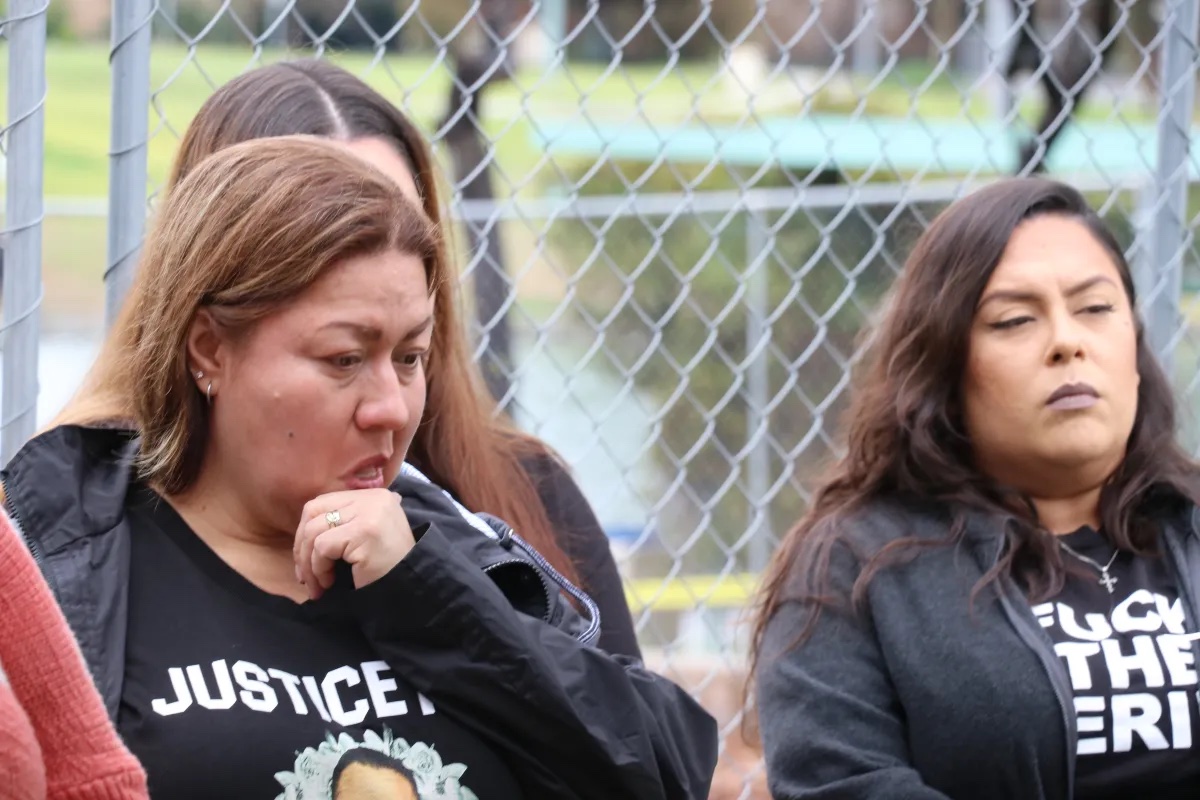Jorge Luis Macías | La Opinion | Read in Spanish
Above: Hilda Pedroza of East Los Angeles, whose father died of Covid. (Credit: Jorge Luis Macías)
With less than two months to go before May 11, when the Covid-19 state of emergency ends in California, myths and misinformation about the disease continue to circulate among Latinos, who account for almost half of the more than 100,000 deaths from the pandemic in the state.
Saahir Khan, M.D., is an infectious disease specialist at USC Keck School of Medicine. He says that particularly among older people he’s noticed recurring myths about the disease that circulate on social media.
“I’ve seen it particularly among newer immigrants,” he told Hispanic LA. “Some of them believe there is a computer chip inside the vaccine and that it allows someone’s mind to be controlled; that seems ridiculous to us, but a lot of people believe it.”
He also points to a YouTube video allegedly showing an individual who received the vaccine and then died shortly after. Or the rumor that the vaccine was made from fetal stem cells and that it violates religious beliefs to be vaccinated.
“Billions of people have received the vaccine and nothing has happened to them… so, to say that there is a risk with the vaccine is not true,” he said, adding that most major religious groups, including the Catholic Church, have endorsed the vaccine.
Still, Khan says such rumors are becoming less and less frequent. “In this day and age, I don’t hear these things so much anymore.”
Numerous infections in a single household
Lupita Martinez is a 28-year-old street vendor who lives in Rosemead, California. She remembers the scare when seven people in her household – except for her two young kids – contracted the virus.
Her 19-year-old brother, Hilario did not believe in the virus at the time, insisting it was “an invention” of the U.S. government to control people.
“In September of last year, he had a high fever for three days and his body ached a lot, but he still didn’t want to take the test,” Martinez recalled. “After that, the rest of us got sick… I took the test, and it came out positive. My throat was very sore.”
Neither of Martinez’ children, Mario (9) and Roxana (7), got sick. Both had already received two doses of the Pfizer vaccine.
But despite her experience, Lupita had to overcome her own fears about the vaccine. She recalled talks with family members, some of whom had not been vaccinated, about how the vaccine would put a chip in people to give them Covid; or that women would become sterile, that the vaccines were to kill people and that they would turn people into zombies.
“A friend of mine who lives in Bakersfield told me she had seen a video that said the vaccine was giving people a heart attack,” said Martinez, who is originally from Puebla, Mexico.
Eventually Martinez overcame her fears and today she urges everyone she meets on the street to take the step to get vaccinated and protect their children.
“I heard a pastor who clearly said that people who do not want to get vaccinated are selfish, and put more people at greater risk,” Martinez said, “even though they know that there are vaccines to protect themselves.”
Low vaccination rates
Latino children between 5 and 11 years of age are among the groups least likely to be vaccinated, and that is a major concern for public health experts.
As of late March, just 25% of Latino children had been vaccinated. That compares to 27% for African American children, 30% for Native American and Alaskan Native children, 39% for white children and 52% of Native Hawaiian and Pacific Islander children.
“We know that, if a person is not vaccinated, their risk of having a serious illness from Covid-19 increases,” said Khan. “That means your risk of getting sick, being in the hospital, being on a ventilator and dying increases.”
Khan also noted that minority groups tend to be at higher risk for contracting Covid 19 because of existing medical comorbidities.
“In general, in numerous studies we have seen a higher risk of this virus among minority and underserved communities. Therefore, it is even more important to get vaccinated if you are at higher risk,” the health expert warned.
This story was produced as part of Covid Myth Busters 4, a groundbreaking fellowship program coordinated by EMS and funded by the California Department of Public Health’s VaccinateAll58 campaign covering myths and misinformation about the pandemic.




